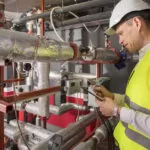Owning a building in Texas comes with its own set of challenges, one of the most crucial being the integrity of its foundation. The Lone Star State is known for its diverse landscapes, expansive terrain, and varying soil conditions, all of which can significantly impact the stability of your building. In this guide, we’ll delve into the essential aspects of foundation details, offering practical insights to help you safeguard your investment and ensure the longevity of your structure.
Foundation Details in Understanding Soil Composition
The foundation of any building is only as strong as the soil it rests upon. In Texas, the soil composition can vary widely, ranging from expansive clay to sandy loam. Expansive clay, common in certain regions, has a tendency to contract and expand with changes in moisture levels, posing a potential threat to the stability of your building. Sandy soils, on the other hand, may not provide sufficient support. It is crucial to conduct a thorough soil analysis to understand the specific characteristics of your building site.

Choosing the Right Foundation Type
Selecting the appropriate foundation type is a critical decision that directly influences the structural stability of your building. In Texas, the most common foundation types are slab-on-grade, pier and beam, and concrete pier foundations. Slab-on-grade foundations, often suitable for areas with stable soil conditions, provide a cost-effective solution. However, in regions with expansive clay, pier and beam or concrete pier foundations might be more suitable, allowing for vertical movement that accommodates soil changes.
Proper Drainage
Water, while essential for life, can be detrimental to the stability of your building if not managed properly. In Texas, where heavy rainfall and occasional floods are not uncommon, ensuring effective drainage around your property is paramount. Poor drainage can lead to soil erosion, compromising the foundation’s integrity. Implementing simple yet effective measures, such as installing gutters and downspouts, directing water away from the foundation, and grading the soil away from the building, can significantly reduce the risk of water-related damage.
Foundation Maintenance
Preventive measures play a crucial role in maintaining the foundation’s integrity over time. Regular inspections of the building’s perimeter, looking for signs of cracks, settling, or unevenness, can help detect potential issues early on. It’s essential to address any problems promptly, as neglecting foundation issues can lead to more extensive and costly repairs down the line. Additionally, maintaining a consistent moisture level around the foundation, especially during dry periods, helps mitigate the impact of soil contraction.
Climate Considerations
Texas experiences a wide range of climatic conditions, from scorching summers to occasional freezing temperatures in some regions. These extremes can affect the soil and, consequently, the foundation of your building. Implementing climate-appropriate construction practices, such as incorporating proper insulation and moisture barriers, can help regulate temperature variations. By considering the local climate during construction and maintenance, you can enhance the resilience of your building’s foundation.
Foundation Repair
Despite taking preventive measures, foundation issues may still arise over time. It’s crucial to address any signs of foundation problems promptly. Engaging the services of a qualified foundation repair professional is essential for accurately diagnosing the issue and implementing effective solutions. Common foundation repairs in Texas may involve underpinning, using concrete piers or steel pilings to provide additional support to the foundation. Timely repairs can prevent further damage and preserve the overall stability of your building.
Local Building Codes and Regulations
Navigating the regulatory landscape is an integral part of building ownership in Texas. Staying informed about local building codes and regulations is crucial to ensure that your structure complies with safety standards. Local authorities often have specific requirements related to foundation design and construction, reflecting the unique geological conditions of the region. Adhering to these guidelines not only ensures the safety of your building but also helps you avoid potential legal complications.

Conclusion
As a building owner in Texas, prioritizing the details of your foundation is a key investment in the long-term stability and durability of your structure. From understanding soil composition to choosing the right foundation type, implementing proper drainage, and addressing maintenance issues promptly, each step contributes to safeguarding your investment. By staying informed about local building regulations and climate considerations, you empower yourself to make sound decisions that will enhance the resilience of your building’s foundation. Remember, a solid foundation is the cornerstone of a secure and lasting structure in the diverse and dynamic landscape of Texas.




